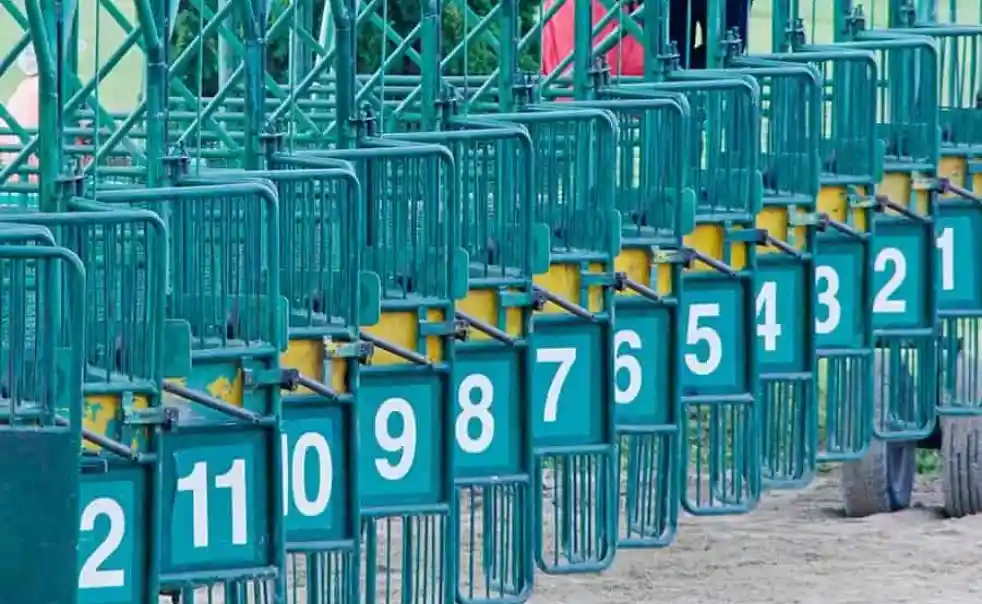Botswana Officials Visit Namibia for Racing Gate Trials

Elle
Oct 17th 2025
Likes
Share:
Gaborone/Windhoek, October 2025 – After studying modern start horse racing gate technology and attending the Okahandja Spring Cup, a delegation of Botswana’s horse racing leaders has come back from a four-day visit to Namibia. The visit, which took place from September 24 to 27, was made in connection with the up-gradation of Botswana’s racing tracks and the gradual discontinuation of the use of rope barriers locally that have been the cause of many disputes.
Among the delegation were the representatives of the Gambling Authority, the Botswana Horse Racing Association (BHRA), and the Botswana National Sports Commission (BNSC). Namibian’s high-tech starting horse racing gate was the first place they wanted to visit to have a look at the operation and to get valuable information about the management of races which they could use in their home country.
For many years, rope barriers have been the mainstay of horse racing in Botswana. Despite the low cost of the system, it has been at the center of controversy, with uneven races being the regular cause of disputes. On the other hand, start horse racing gates are being employed in Namibia. These facilitate the simultaneous release of horses, thus cutting down on conflicts and making the races more fair, both for riders and spectators.
Following a statement from a BHRA spokesperson, it is said that the utilization of mechanical gates in Botswana might be advantageous over the sole aspect of fair competition. The spokesperson stated that such a technology might lead to a number of positive effects such as a higher confidence of gamblers and the consequent increase of the number of visitors to the race course as well as the creation of job vacancies for the stable workers, trainers and support staff.
The Botswana delegation was at the Spring Cup in Okahandja on 27 September. The elite event held 19 short sprints and brought more than 60 horses from all over Namibia.
Wins by Katiti Komambo from Okahandja Racing and Pee Jay from Professor Supporters Club were cheered with music performances, among others, Oviritje and Maxaisa that attracted big audiences to the venue, were played.
Botswana’s delegation paid particular attention to how organisers managed race logistics, prize distribution, and crowd control. These observations are expected to influence the structure of upcoming events at home, including the Masa Easter Cup and the Motokwe Champions Cup.
Horse racing in Botswana is valued at P402 million nationally. Leaders such as Gambling Authority CEO Peter Kesitilwe and Sports Minister Jacob Kelebeng view the sport as a contributor to both economic activity and community cohesion.
The introduction of start gates, they believe, could help professionalise the sector further. More transparent races may drive higher betting revenues, which in turn would support event organisers, horse owners, and jockeys. The BHRA has stated that winnings from larger and fairer competitions could help trainers and owners cover essential costs such as feed and veterinary services.
With many horse owners balancing farm work alongside training, additional income could make a measurable difference to rural households. The modernisation push also holds promise for job creation, with positions opening for skilled technicians to operate and maintain the gates, as well as opportunities in race management.
Following the Namibia visit, Botswana officials are considering a pilot introduction of start gates at a major derby in early 2026. If the trials are successful, installations may extend to key venues in Gaborone, Francistown, and Maun.
The step was preceded by an accord signed in July 2025 between the gaming authorities of Botswana and Namibia, under which they agreed to exchange technologies and knowledge in the sports sector area. The partnership is expected to deepen the relationships between the two countries, besides upping the standards in horse racing.
In effect, the BHRA, which has just been officially linked with the Botswana National Sports Commission, was taking steps towards a more comprehensive plan to professionalise the sport of horse racing all over the country. The association hopes to coordinate race organisation, infrastructure, and governance under one central framework by adopting Namibia’s model.
Authorities are optimistic that this setup will draw more sponsors and betting operators to local events, thus providing the sport with a stable and sustainable base for its long-term development. Moreover, this could make Botswana a rival in the horse racing market at the regional level, thus a move that would be in line with Namibia’s rise in the sector.
The change might be perceived as a mere technical one with the introduction of start gates; however, this is a major move towards the modernisation of the horse racing industry in Botswana. By examining the systems in Namibia, the leaders in Botswana are not only addressing the issue of fairness at the starting line but also, they are seeking to generate wider economic opportunities that are linked to the sport.
If plans stay on track, the sight of mechanical gates opening in unison at Botswana’s racecourses could become a reality within the next two years, setting the stage for a new era in the country’s racing calendar.
